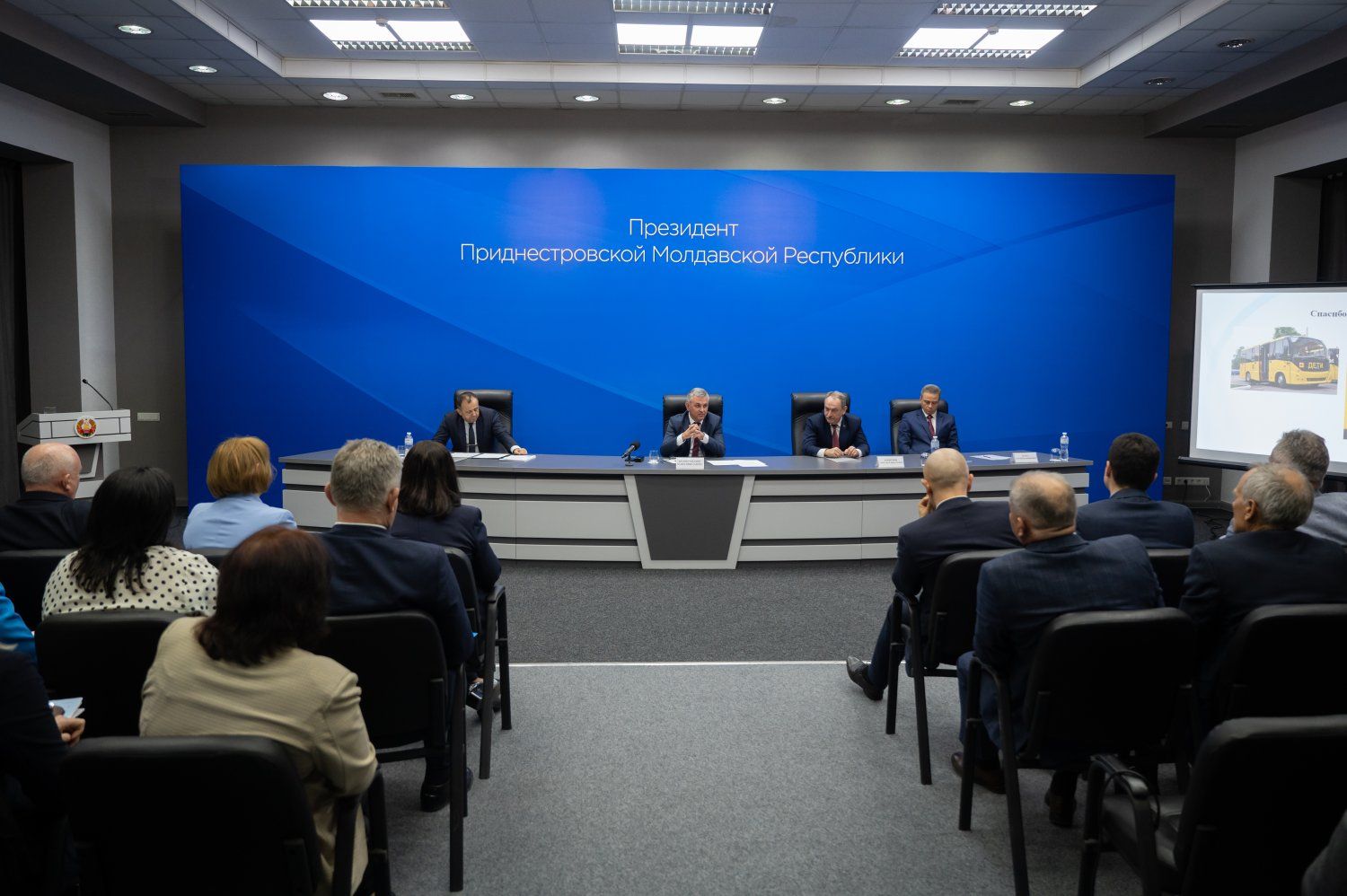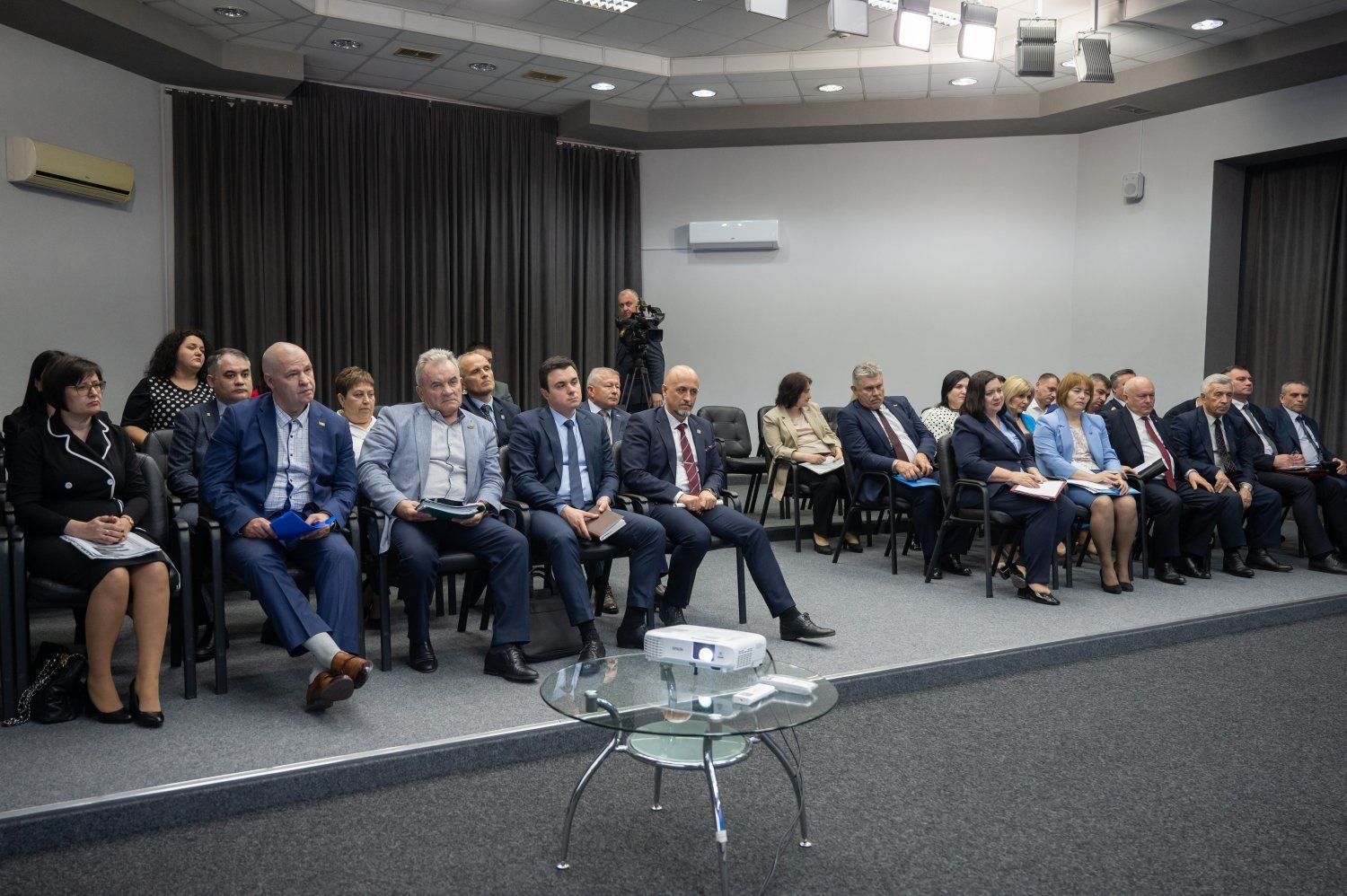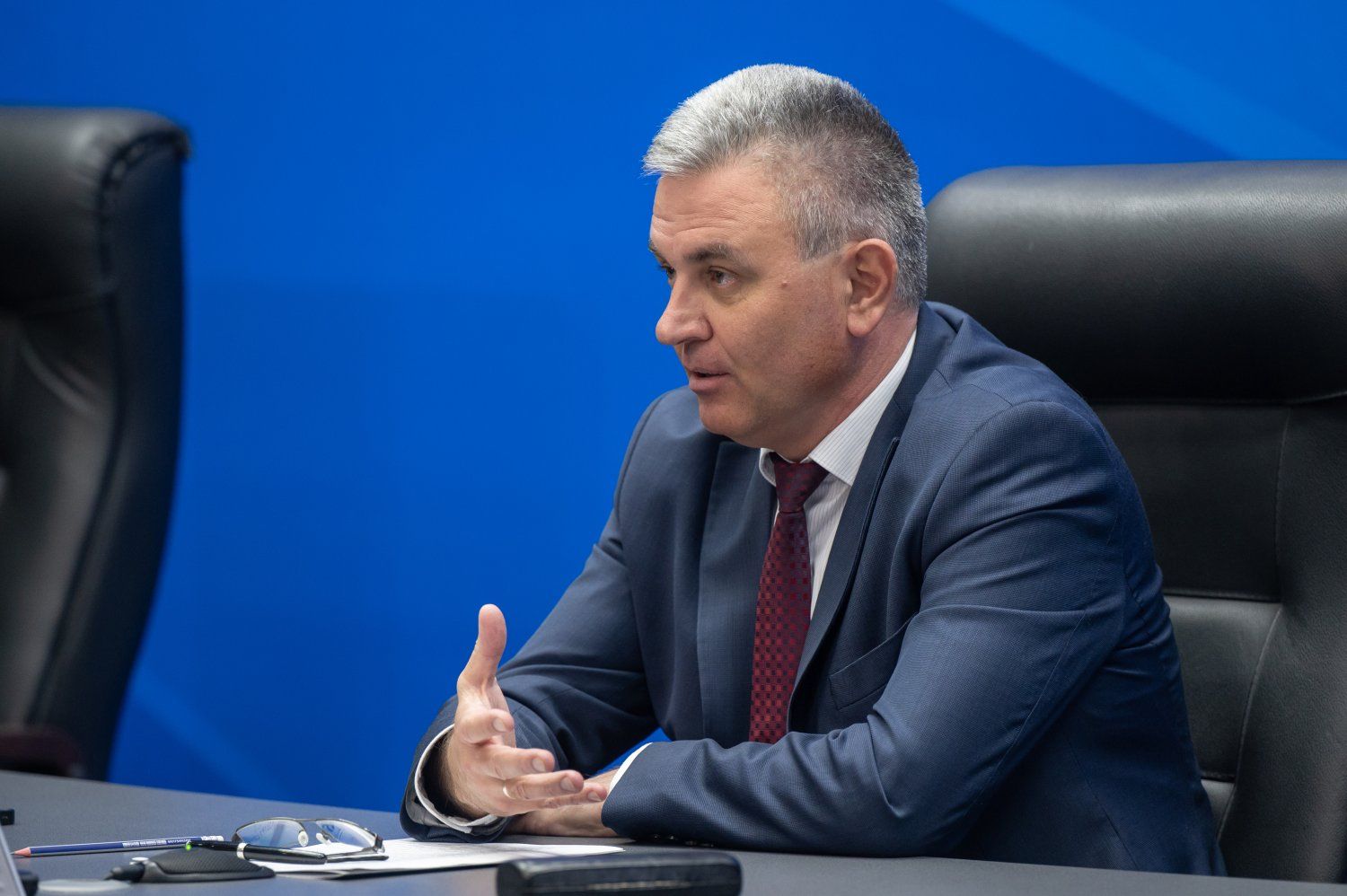An extended meeting dedicated to ensuring quality education for Pridnestrovian schoolchildren, regardless of their place of residence, was held at the presidential executive office. Public and administrative authorities, heads of state administrations of cities and regions of the republic, chairmen of city and district councils, the Minister of Education and heads of public education departments were invited to the conversation. They talked about small schools. The PMR Minister of Education Svetlana Ivanishina on the President’s instructions presented a detailed report indicating specific settlements in which general education institutions with a minimum number of pupils operate.
There are currently 158 schools in the republic: 70 urban and 88 rural. There are 617 classes in schools in rural areas at the same time, in which 4753 children study, and there are 122 classes in urban schools, the total number of pupils of which is almost one and a half thousand persons. Eighty schools are classified as small schools. Most of these are in Rybnitsa district – twenty four, thirteen each in Kamensky and Grigoriopolsky, eleven in Slobodzeya, ten in Dubossary, three are assigned to the Bendery Public education department (Giska, Protyagailovka), one is assigned to Public education department of Tiraspol (Kremenchug). Data from 80 schools equals 739 classes (6245 pupils). None of them are fully staffed, although the number of employed teachers is 1225 people. There are not isolated cases when the number of employees of an educational institution significantly exceeds the number of schoolchildren. There are classes with 1-2 pupils. One teacher often conducts several classes in small schools, often without having a specialized education. A common practice is to combine two or even three different classes, for example 5, 6 and 7, into a single one. It was stated at the meeting that all this leads to a low level of teaching with unreasonably high costs of maintaining the school.
Proposals related to optimizing the educational system were discussed. Specific options for possible mergers were presented that would ensure a full-fledged process of quality education for children. The released personnel will be able to replenish the teaching staff of those schools to which it is proposed to transfer children from the smallest schools. Both teachers and pupils are supposed to be transported to their places of study by school buses. 17 units will be purchased, according to preliminary estimates.
Most participants in the working discussion support the idea as such. It was noted that we are talking not only about the education of rural children, but also about their socialization and providing the opportunity to receive additional education. The financial aspect was not left unattended. The cost of maintaining one pupil per year ranges from nine to twenty thousand rubles. The fewer pupils in a school, the more expensive it costs the state to provide education for each of them.
The point that the President emphasized: primary schools should be preserved everywhere. The President considers the creation of school-kindergarten complexes in rural areas to be a good practice. Vadim Krasnoselsky emphasized that reasonable optimization is an effective tool. He requested additional information on a number of aspects, noting that today's meeting only opened the necessary discussion. The issue will continue to be worked on.











